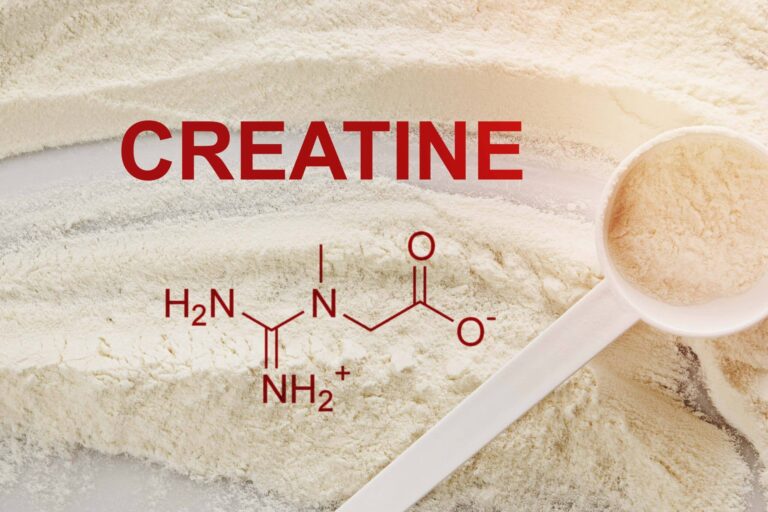Creatine is a fundamentally natural material contained predominantly within the cells of muscles. It plays an energy role, particularly when performing intense work, such as weight lifting and sprinting. Since the body naturally produces an amazingly minute level of creatine, athletes and sports enthusiasts supplement to increase their performance and gain an advantage over competitors. So, why is creatine so popular? Well, it is easy: this molecule increases the resynthesis of ATP, the fuel source in the body, which allows the muscles to work for longer periods and work harder.
What Creatine Does
Creatine basically replenishes your ATP stores in the muscles. When you do high-intensity activities, your ATP supplies dwindle rapidly. This will cause fatigue, which is what can slow you down. Creatine supplementation increases higher rates of replenishment of ATP levels, greater delay of fatigue, and more power. So, here’s the magic behind why it’s associated with muscle growth and endurance.
The 5 Main Types of Creatine
With multiple varieties to choose from, all of them having their different traits, levels of creatine might be the end goal, how they are absorbed could be pretty much different and also side effects and effectiveness of the used product. Therefore, it is time to review five forms of creatine which you might have heard of in the gym.
Creatine Monohydrate
Creatine Monohydrate is by far the best known and the most examined type and it is also one of the best performers with the additionally advantage of being very economical. As a water soluble compound, Creatine Monohydrate, which is creatine bound with water molecules the ATP reserve is replenished very efficiently. However, Monohydrate is also the most investigated form; hence, it has become the widely-used creatine included in different supplements. As you start taking creatine, this form can help you get a reliable starting point since it is easily available.
Creatine HCL (Hydrochloride)
Creatine HCL is also the newest and more effective supplement. It is much more soluble and bioavailable than monohydrate. The absorption rate involves making the drug more powerful so you can take small amounts with the same result, no so much swelling or discomfort in the stomach. Good for those who have difficulties in the intake of monohydrate or those who need something more condensed, it might turn into a perfect solution to the problem.
Creatine Ethyl Ester
Creatine Ethyl Ester is meant to be even more bioavailable meaning that it may be taken in larger amounts more frequently. However, all studies conducted so far regarding its effectiveness have opposite results; some state that it is no better than monohydrate in actual effect. Nevertheless, it is mostly advertised for faster absorption and is often sought after by athletes who want to try a variety of creatines.
Buffered Creatine
Buffered Creatine has an altered pH formula, to minimize creatine degradation in the stomach, which increases its stability. According to this theory, buffered creatine is supposed to be the more gentle form on the stomach and likely more effective because of improved stability. While some swear by it, it is somewhat pricier, so it is probably not necessary unless you have issues digesting other forms.
Liquid Creatine
Liquid creatine is probably the most convenient. It comes mostly in shots or drops, ready to drink. Convenient or not, some studies might suggest that liquid creatine degrades faster, making its efficacy slightly lower. Still, if you are always on the go or do not enjoy powders, then liquid creatine is probably the most convenient choice for you.
How to Choose the Right Type of Creatine for You
The best creatine is what suits your needs best, goals you want to achieve, as well as your tolerance and budget for certain forms. Then, monohydrate is best for newbies, HCL for those with concerns about the digestive system, ethyl ester for fast absorption seekers, and for those who prefer convenience, liquid and buffered creatine will be just what you need.
The Important Things to Consider in Selecting Creatine
When considering a creatine supplement, you are probably looking at things such as absorption rate-to how quick it gets absorbed into the bloodstream-cost, as some forms cost more than others-and then on top of that, you have your fitness goals-getting the desired form of muscle building or endurance. Think of these factors as a roadmap to guide you to the type of creatine that will serve you best.


